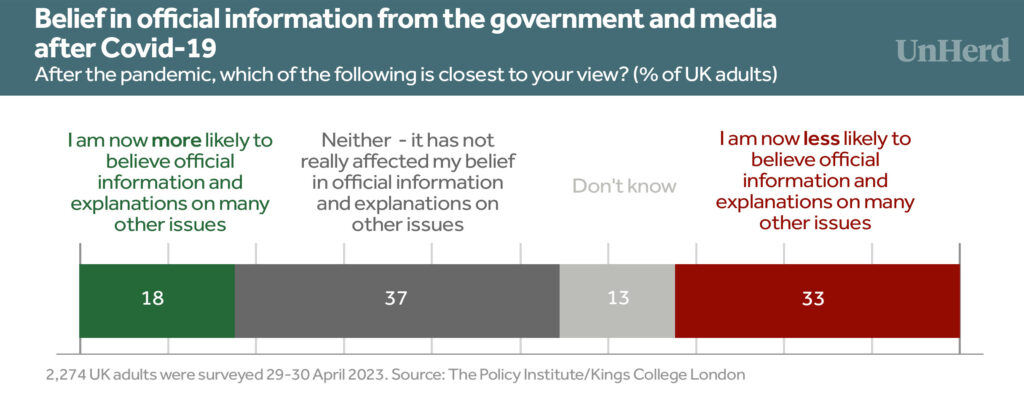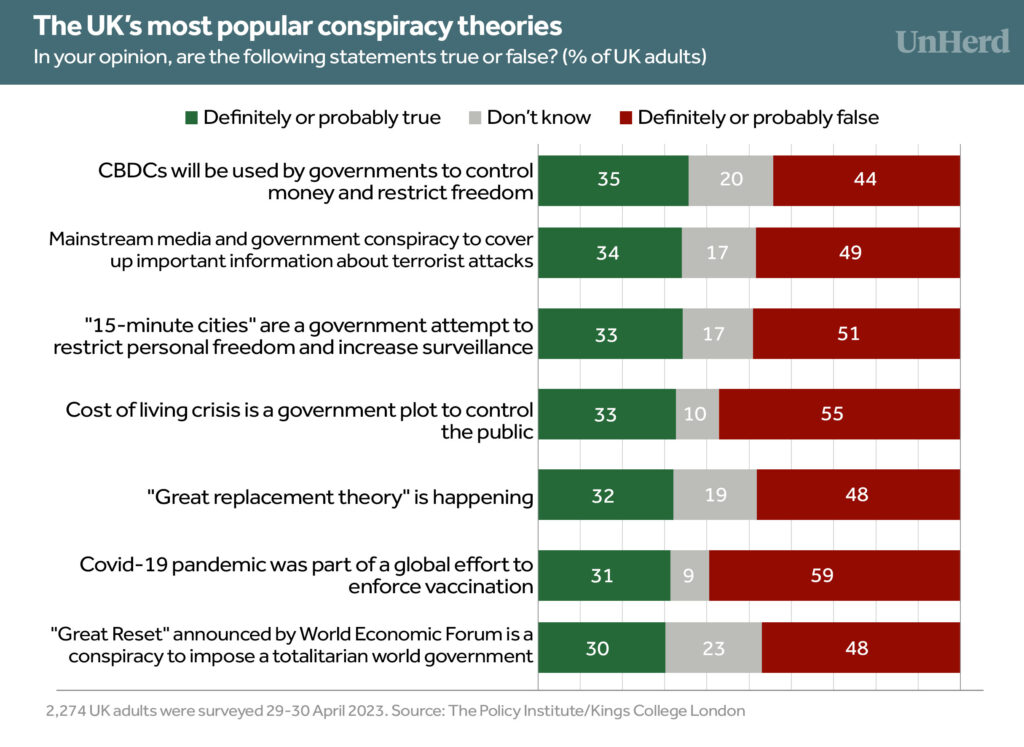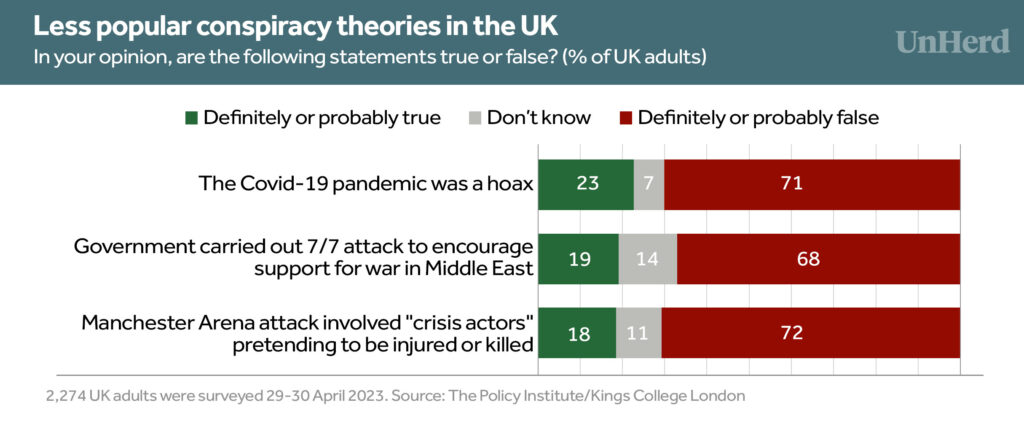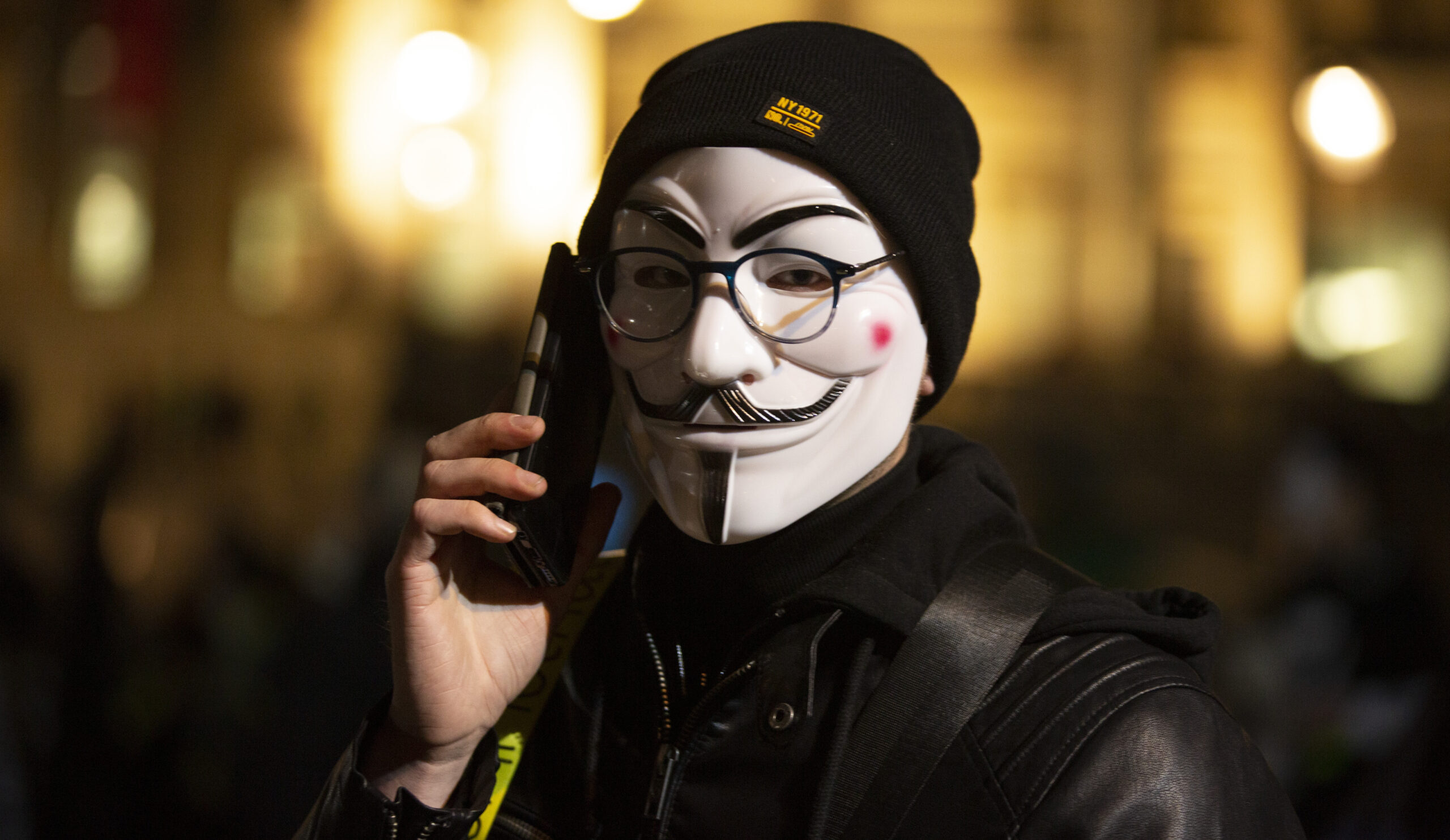Up to a third of people in the UK believe in theories such as the Great Replacement Theory, according to a new study. This builds on polling conducted by UnHerd Britain and Focaldata earlier this year, which also highlighted the rise in conspiratorial thinking among the UK population.
This latest report, published today by the Policy Institute at King’s College London, surveyed 2,274 British adults at the end of April, asking the extent to which they believed in different theories, as well as their views on the people who hold these beliefs. Strikingly, a third of respondents said they are now less likely to trust information following the Government response to the Covid-19 pandemic, almost double the number who say the opposite (18%).

When it comes to thinking particular theories are true, the most popular involves central bank digital currencies (CBDCs) being used to restrict personal freedom (35%), in which concern revolves around how state-sanctioned digital currencies allow governments to monitor transactions, and that Western countries are following a blueprint laid out by China.
Another popular conspiracy concerns government cover-ups about terrorist attacks (34%) such as the Manchester arena bombing, which 18% of respondents think was a hoax perpetrated by “crisis actors” pretending to be dead. An additional 33% believe that 15-minute cities, which aim to ensure that all essential services are within walking or cycling distance, is a tool of government surveillance. Earlier this year, there were protests against such developments in the UK.
The portion who believe that a Great Replacement is currently taking place, in which white Europeans and Americans are being deliberately replaced by non-white immigrants, stands at 32%. Popularised by the French writer Renaud Camus around the turn of the millennium, the theory has since spread across Europe and into the United States in Right-wing circles.

Against the backdrop of falling trust in UK institutions since the pandemic, virus-related conspiracy theories have also gained widespread support. Among respondents to the KCL survey, 31% think the pandemic constituted a global effort to force people to take vaccines against their will, while just under a quarter (23%) think the whole thing was a hoax.
A quarter of those polled said they had either protested against “government or media misinformation linked to Covid-19” or would be willing to in the future, with an only marginally smaller figure (24%) saying the same about anti-lockdown protests. For a rally against a “deep state” of military officials trying to secretly manipulate government policy, the corresponding figure was 23%.

The research was commissioned for the new BBC Radio 4 podcast Marianna in Conspiracyland, hosted by Marianna Spring, the corporation’s Disinformation and Social Media Correspondent. The tagline for the ten-part series is “What happened to the people who fell down the rabbit hole into a world of conspiracy theories during the pandemic?” and is released today.











Join the discussion
Join like minded readers that support our journalism by becoming a paid subscriber
To join the discussion in the comments, become a paid subscriber.
Join like minded readers that support our journalism, read unlimited articles and enjoy other subscriber-only benefits.
Subscribe